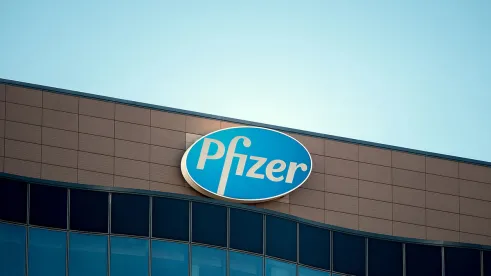On July 11, 2022, the United States District Court for the District of Kansas approved a $264 million settlement against Mylan and certain of its subsidiaries in the case In Re EpiPen (Epinephrine Injection, USP) Marketing, Sales Practices, and Antitrust Litigation in a matter broadly tagged as price-gouging litigation. Plaintiffs filed class action lawsuits against Mylan, the owner of EpiPen, and Pfizer, Inc., a manufacturer and seller of EpiPen, alleging, “anticompetitive conduct including, among other things: engaging in a ‘hard switch’ and selling EpiPens only in packs of two; entering into discount agreements with schools that were conditioned on the schools not purchasing competing products; securing multiple overlapping patents on minor changes to the EpiPen and engaging in ‘sham’ patent litigation to forestall generic competition; and paying excessive rebates to commercial insurance companies, pharmaceutical benefits managers, and state-based Medicaid agencies conditioned on those companies and agencies not reimbursing the use of competing products.” The plaintiffs claimed that the defendants broke various state antitrust laws and the federal civil RICO statute. The suits, filed in the Northern District of Illinois, the District of Kansas, the District of New Jersey, and the Western District of Washington, were joined in August of 2017 in the District of Kansas.
Mylan obtained the exclusive right to market, distribute, and sell EpiPen in the United States when it acquired Dey Pharma L.P. in 2007, and Pfizer is the sole supplier of Mylan EpiPens. Mylan has increased the price of EpiPen since then, raising the price from $100 in 2007 to over $600 in 2016, despite the cost of an EpiPen dose of epinephrine remaining at around $1. Since 2009, Mylan has had over 80% of the market share of epinephrine auto-injector devices in the United States, and, in 2012, Mylan’s market share was close to 100%.
Prior to the settlement with Mylan, Pfizer settled with the plaintiff class on November 11, 2021 for $345 million.
Although there are no express price-gouging claims in this suit, it has been labelled as a price-gouging claim as the alleged anticompetitive conduct resulted in consumers forced to pay what have been identified as exorbitant prices for EpiPen. Plaintiffs claim that Mylan used tactics, including discount agreements and excessive rebates that dramatically raised the price of EpiPen.
Mylan is a defendant in a second proposed class action in the United States District Court for the District of Minnesota, along with a number of pharmacy benefit managers and their corporate parents, including Express Scripts, OptumRx, and CVS Caremark Part D Services. Plaintiffs, drug wholesalers Rochester Drug Co-Operative, Inc., and Dakota Drug, Inc., allege in that case that “Mylan paid bribes and kickbacks to a group of pharmacy benefit managers…to ensure that Mylan could raise the price of the EpiPen while keeping a monopoly share of the market.” On April 5, 2022, Judge Eric C. Tostrud dismissed all of plaintiffs’ claims against CVS Health Corporation, Express Scripts Holding Company, United Health Group, Inc., United Healthcare Services, Inc., United Healthcare, Inc., Optum, Inc, and OptumRx Holdings, LLC for lack of evidence, and dismissed many of the plaintiffs’ claims that Mylan engaged in bribery and paid kickbacks to the pharmacy benefit managers in violation of the Sherman Act and RICO. Judge Tostrud denied defendants’ motion to dismiss plaintiffs’ antitrust claims, asserting that there was enough evidence of antitrust violations to move forward to discovery.
Special thanks to summer associate Sarah W. Ghivizzani in the Washington, DC office for her contributions to this post.




 />i
/>i

